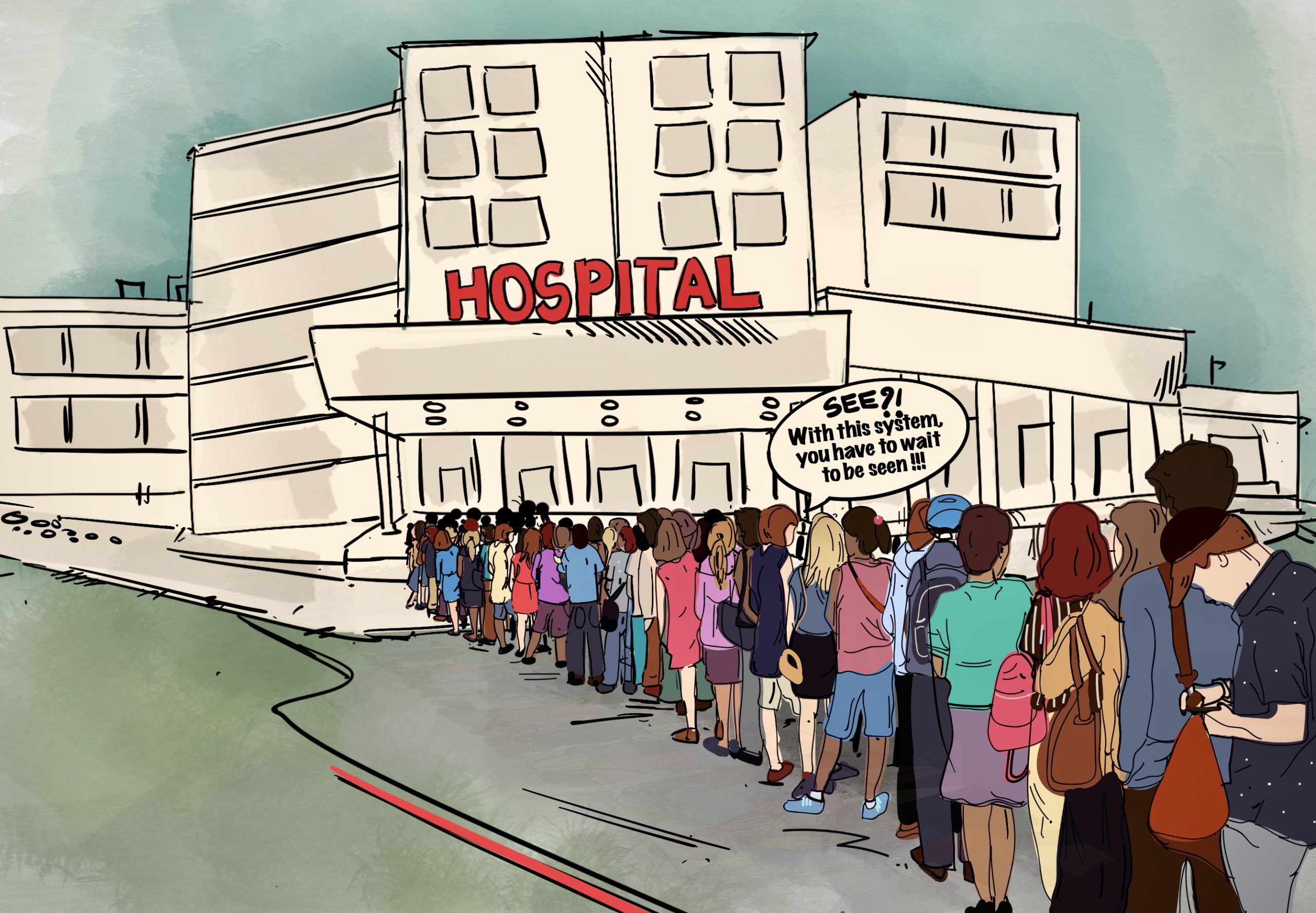Another lockdown is here in Toronto and I can’t help but wonder how the healthcare system will be affected, yet again, within this next month. If the pandemic has taught us anything, it’s that our medicare system was underprepared for 2020’s pandemic.
Back in March, it was reported that Ontario had only 12 ventilators per 100,000 people. Considering 80 per cent of those who need a ventilator are stricken with illnesses unrelated to COVID-19, in reality we only had two to three ventilators per 100,000 people.
Recently, Radio Canada International reported, “Doctors are concerned that if people sick and dying of COVID-19 infection flood the hospitals, other services will close down or diminish.”
Ontario already caps intensive care unit (ICU) beds at 150 people and we have finally reached that threshold, with Toronto’s daily COVID-19 cases in the quadruple digits and the province’s hospitalization gone up by 63 per cent in the last four weeks. This means that some people who have serious ailments, like cardiac illnesses or cancer, will have to have their surgeries cancelled.
This raises the question: as these patients wait, what other problems can they develop?
In March, I myself was scheduled to receive a consult for a much-needed laparoscopy, until my doctor phoned me to cancel and reschedule. I never received a callback. Over the course of the next few months, I developed four additional (let alone painful) signs and symptoms.
But the issues with the country’s medical care structure dates back to even before COVID-19. In 2017, Canada was ranked “ninth out of 11 Western countries in a respected survey of health care systems from the Commonwealth Fund, a New York-based research institute,” reported The Globe and Mail.
To be clear, I’m not dumping on public healthcare — after all, the U.S. placed last on that survey with their privatized system.
I also don’t support the privatization of healthcare, but it’s worth wondering why Canada’s medical care is so poorly structured to the point of extended morbidity where reformation is necessary. How does this factor into healthcare being regarded as a human right in Canada?
“Once benefits are factored in, a family doctor earns about the same as a teacher in most provinces or an autoworker. Many family doctors earn much less.”
One of the biggest reasons why we placed third to last was due to our wait times. In 2019, the Canadian Institute for Health Information (CIHI) said wait times are increasing in emergency rooms (ER). That was also the year that Ontario broke the record for the average ER wait time with a whopping 16.3 hours — the province’s target is eight hours.
The issue is that hospital ERs will see unnecessary patients when those individuals have nowhere else to go. More family doctors and clinics nationwide need to provide alternative care during off-hours so a patient isn’t in the ER for a common cold.
Medical professionals tend to also be severely underpaid in Canada, which may be a contributing factor to the insufficient number of doctors to begin with. In an article for the Fraser Institute, Fred McMahon wrote, “Once benefits are factored in, a family doctor earns about the same as a teacher in most provinces or an autoworker. Many family doctors earn much less.”
If the federal government wants to fill these gaps, a comprehensive reform is needed: allowing private clinics, creating individual yet government-funded medical savings accounts, or paying doctors based on their patient roster rather than fee for service are just a few of the ways the government’s down payment of $6 billion can be allocated — although investment into that budget should be more.
On another note, doctors must also abandon their dismissive attitudes toward patients. Recently, an Ontario woman had to travel all the way to the U.K. in the middle of a pandemic to receive an overdue surgery because of this problem.
The difference between that and empathy can be the difference between life and death. Empathy is a great tool for doctors to get the best outcome for their patients — one that has also been linked to “improved patient satisfaction, better concordance with medical advice, decrease of anxiety and distress, improved diagnosis and clinical outcomes.”
Whether or not these are all pieces of one giant domino effect, the systemic issues here birth consequences that no ailing patient wants to pay if they don’t have to.
With the daily COVID-19 case numbers slowly reaching the 2,000s, hospitals may expect some of their services to be closed down or diminished. Patients can expect a degree of negligence to some of their other ailments. And the provincial government can expect to answer to an angry population, if we flatten the curve with COVID-19 but maintain a waning sense of national healthcare.




